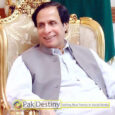
By Syed Abdul Karim Tahir
Though, for the incumbent government, conversion of the country into a welfare state, alleviating poverty and eradicating monstrous Corruption root and branch, is still at the top of the agenda, they are also trying their level best to bring about some radical reforms in the Judicial and electoral systems. However, it isn’t so easy a task as it sounds. Comprehension of the subject to the fullest and sincerity of all stakeholders to the cause will ultimately determine the fate of these burning issues. As far as judicial reforms are concerned, the discussion doesn’t seem to go beyond Judicial activism, Judicial restraint and judicial review whereas pivot of the system i.e. the judge is totally ignored. As the Judges are solely responsible for rendering justice to all the citizens, irrespective of race creed, color, status and official designation without fearing from any quarter and without being influenced by any pressure group or lobby, they are supposed to burn the mid night oil, keeping in mind the huge back log of petitions, studying every case, throwing themselves heart and soul into this exercise with a view to reaching the truth and pronouncing a just verdict within the shortest possible time. In fact, our judicial system needs to be restructured and strengthened, revisiting the constitution pinpointing flaws of the system, keeping in mind adverse effects of miscarriage of justice on society and making some drastic constitutional amendments based on the following self-explanatory points: –
- There should be a Supreme Judicial and Executive Council for the Judicial system of Pakistan, vested with overall authority and responsibility for selection, training, appointment, promotion and posting of judges and overall supervision of the system.
- Initially, This Supreme Council should comprise the Chief Justice as Chairman and nine senior most Judges of the Supreme Court as members.
- The retirement age of Judges should be sixty years and every Chief Justice of the Supreme Court, at the age of sixty, should become the member of the Supreme Council and the age of their retirement should be sixty-five years.
- The President of Pakistan the Prime Minister, The Leader of the opposition, the Attorney General, the Parliament and the Bar should have nothing to do with the selection, appointment, promotion and posting of Judges.
- There shouldn’t be any kind of direct induction of Judges in the High courts. The Judges, once selected by the Supreme Judicial and Executive Council, at the lowest level should be given a chance to reach the top slot after promotion tests and interviews at every stage.
- Criteria for selection and promotion of Judges should be based on the following:
a) Physical strength.
b) Mental strength.
c) Soundness of knowledge.
d) Soundness of Judgement.
e) Trustworthiness.
- Upper age limit for the selection of Judges at the lowest level should be thirty years.
- NAB and Election commission of Pakistan need to be brought under the administrative control of the same Supreme Judicial and Executive Council with a view to enhancing the autonomous status of both the institutions.
- Legislation should be enacted suggesting strict punitive action against lawyers and investigation officers, applying delaying tactics in courts.
- A Judge should not be considered for the next due promotion if three consecutive Judgments or five Judgments in total, passed by them, are overruled by a higher Court.
- While elevating a junior judge with a high level of competence and an immaculate performance, the superseded judges, with a questionable competence as well as a questionable performance must be very respectfully bidden farewell.
- Last but not least, having a rational and pragmatic approach, we should make concerted efforts to reform all our systems in the real sense of the word “reform”. The sooner the better. PAK DESTINY







These points definitely present an ideal solution for all the problems faced by the judiciary.
Very good suggestions to make the judiciary independent and to provide the judicial system according to the will of the people of Pakistan.
Jazakallah
Jazakallah
Finding it relevant to the topic I would like to quote maulana tariq Jamil who during a talk show on a TV channel said,,
” our judicial system is in a state of utter dilapidation and positively on the side of oppressor ”
Capital Talk : Geo TV
October 19,2021
Name:- shehzad Naveed
Finding it relevant to the topic I would like to quote maulana tariq Jamil who during a talk show on a TV channel said,,
” our judicial system is in a state of utter dilapidation and positively on the side of oppressor ”
Capital Talk : Geo TV
October 19,2021
Very nice suggestions.
It’s certainly need of the hour to restructure and strengthen our judiciary. I agree to all the points mentioned in the article.
During a session of the National Assembly on 10th of November2021, in response to a question asked by PPP MNA Shazia Marri, parliamentary secretary for law and justice Ms Maleeka Bukhari admitted that Pakistan had skidded down in the list of performors in the field of providing justice to the common man according to world justice project ” Rules of Law index 2020″ .
It must be kept in mind that objective of providing justice to the common man cannever be achieved until and unless judiciary is freed from the clutches of politicians and the Executive.
Good points
Good write-up indeed